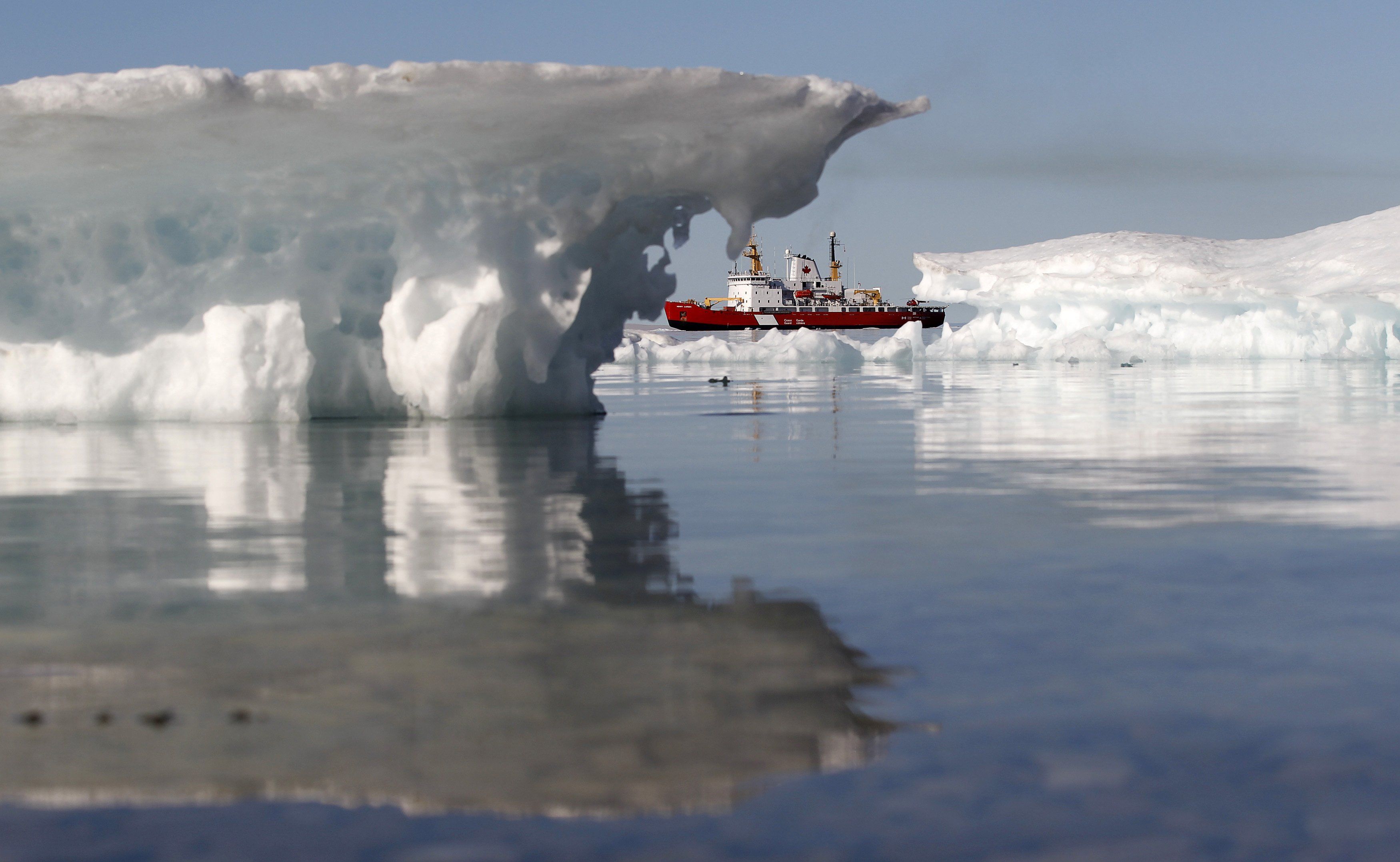Russia has begun using tankers designed for southern waters to ship oil to China through icy Arctic waters off its northern shores, which has worrying environmental and security implications, the Wall Street Journal reports.
Russia moved about a dozen tankers through the passage in the last two months and is beginning to use tankers without so-called ice classification — stronger hulls designed for shipping in icy waters. Because of Western sanctions imposed over its invasion of Ukraine, Moscow is increasing oil exports to China, and the northern route is shorter than the trip through the Suez Canal.
Why is this concerning? Because it appears to herald a new era of Chinese presence in the Arctic – and because a spill in these treacherous northern waters would be disastrous, spreading oil beyond Russian territory.
“I think it’s safe to say that a Russian oil spill in the Arctic would have catastrophic consequences given the fragility and remoteness of the ecosystem, which would hamper containment and clean-up efforts when that oil inevitably spread beyond Russian waters,” says Graeme Thompson, a global macro senior analyst at Eurasia Group.
The closer relationship between Russia and China is opening the door to more Chinese military activity in the Arctic. This has worrying implications, particularly for Canada, which has little capacity to monitor its vast northern waters. Last year, the Canadian military found Chinese monitoring buoys in Canadian waters, but it’s unclear how much activity Canada is able to surveil. A report from the country’s auditor general last year said that Canada has significant gaps in its ability to detect or track ships in the Arctic.
Canada has agreed to spend $4.6 billion over the next decade on upgrades to northern air defenses, but Canada has never spent the kind of money necessary to have a bigger presence in its Arctic waters, meaning this region is its weakest security link.
The thawing of Arctic ice is opening up northern waters to foreign shipping, both civilian and military, which ought to motivate policymakers to wake up to threats from a new frontier. But Canada is not moving to close the gap by boosting its spending to 2% of GDP – the level NATO guidelines recommend for military readiness. In fact, quite the opposite: Ottawa is looking for $1 billion in savings from its current budget.
“I think it’s pretty clear that Canada is largely dependent on the US for defense and surveillance in the far north,” says Thompson. “Although Ottawa is a critical security partner for Washington, its capabilities and capacity – both on the sea and in the air – to contribute to Arctic defense are not what one might expect from a country with such a large territory and coastline north of the Arctic Circle.”
“In some ways, this works fine for both the US and Canada – Washington takes the lead, and Ottawa is happy to let them – although that de facto arrangement could become more fraught as geopolitical competition heats up in the north.”
